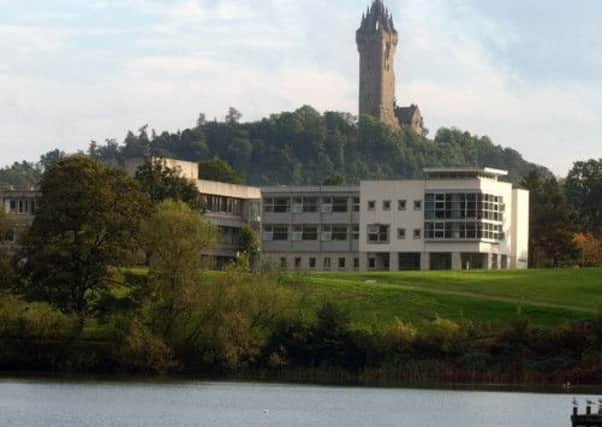Tuition caps to hit Scots students


Aberdeen University has become the first higher education institution to raise the bar on getting a place on some of its courses after an 8 per cent increase in applications this year. The move is likely to spread to other Scottish universities as demand for places grows in future years as a result of the SNP Government’s non-charging policy for students from Scotland and the European Union.
Stirling and Heriot-Watt are already warning that the cap imposed on the number of Scottish students by the Scottish Government meant only those with the best grades were likely to win a place.
Advertisement
Hide AdAdvertisement
Hide AdWhile students from elsewhere in the UK must pay fees of up to £9,000 a year to study in Scotland, Scots and EU students have their tuition paid for by the Scottish Government. However, the funding arrangements mean the number of Scottish and EU students is capped and universities can be fined for exceeding their quota.
A spokeswoman for Aberdeen University said: “Entry to the university is especially competitive this year, and regretfully, we are unable to make offers to all the students to whom we would wish.
“However, while our overall entry requirements have increased this year – and the majority of students that meet those will have a preponderance of As at Higher – our selectors will continue to consider each application on its individual merit.”
A spokesman for Stirling University said: “The last two years has seen an increasing demand for undergraduate places from Scottish students and our applications across the board for undergraduate courses to start this September are up a further 4 per cent on this time last year.
“Entry to university has always been competitive, and regretfully, we are unable to make offers to all students who apply”.
A Heriot-Watt University spokesman said: “Overall applications have risen steadily over the past few years with competition for capped places. The university has not taken any mid-stream decision to change our already high entry standards, but, like any selective university, will award places to the top applicants.”
Edinburgh University said there had been an increase in Scotland and EU applicants of around 4 per cent, but there were no plans to change entry requirements this year.
Opposition politicians described rising entrance requirements as “the unintended consequences of the SNP policy. Labour’s education spokesman Hugh Henry said: “We know that universities will continue to advertise course places but deny Scots students places as there is no more funding. There’s no point celebrating free tuition if there is no place for you at a university.”
Advertisement
Hide AdAdvertisement
Hide AdRobin Parker, president of NUS Scotland, said: “Higher entry requirements are a particular concern for students from disadvantaged communities in Scotland, where currently poor-performing schools do not give pupils equal opportunity with their more fortunate peers to achieve the highest grades. We know from experience that selecting students by looking only for those with the highest grades is a blunt tool when it comes to identifying those with the most potential to succeed.”
A Scottish Government spokesman said: “We have a record number of full-time university students in Scotland, when the number of acceptances to universities in England have reduced dramatically, and announced an additional 2,000 places in 2013-14 to increase access to university.”